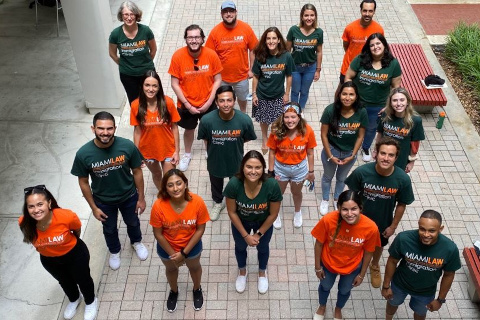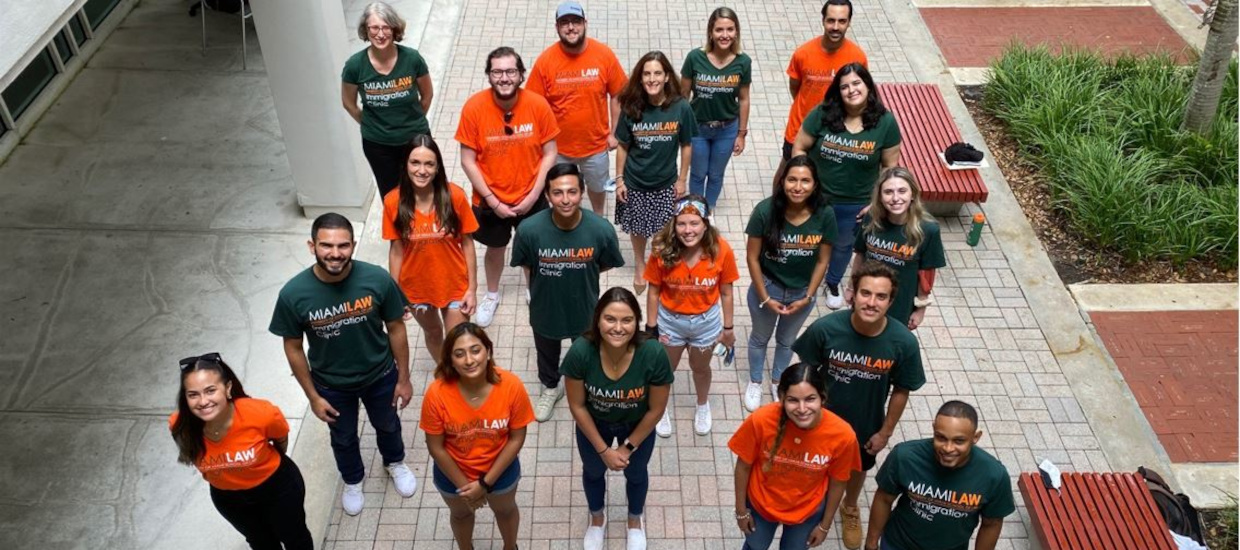Cases
All of the clinic's clients are in removal proceedings before immigration court, the Board of Immigration Appeals, or federal courts. The clinic accepts cases of detained and non-detained immigrants on a referral basis from legal service providers and other organizations.
Projects
Somali Litigation Work and Advocacy
On December 18, 2017, the Immigration Clinic, with its partners, filed a class action lawsuit on behalf of 90 men and 2 women who were shackled for two days and abused on a failed deportation flight to Somalia. Read about the lawsuit. The Clinic also filed an administrative complaint calling for an investigation into what happened on the ICE Air flight.On January 8, 2018, the Immigration Clinic, with other organizations, filed an administrative complaint calling for an investigation into Glades County Detention Center--one of two places where the 92 Somali men and women who were on an attempted deportation flight are being held. The complaint alleges that Glades employees have inflicted verbal and physical abuse on the Somali nationals (including the dangerous use of pepper spray), denied them medical and mental health care, and interfered with their rights to make a grievance. The complaint also cites inadequate access to the faculty by attorneys--including the lack of confidential attorney phone calls and only one attorney meeting room.
Detainee Conditions
Students conduct "Know Your Rights" presentations for detainees and monitor conditions in Florida jails that hold immigrants for Immigration and Customs Enforcement (ICE). After visits to Glades County Detention Center in Moorehaven, Florida, students wrote letters of concern to jail and ICE officials. (See UM Law Immigration Clinic Letter of Concern to Jail and ICE Officials: May 30, 2017, January 19, 2016, November 1, 2013, October 8, 2012, October 7, 2011.
After one of these letters, the Sheriff's Office wrote a memorandum in response. Students are calling for ICE not to renew its contract with Glades. For news coverage, click here to read the Daily Business Review article.
Stopping Deportations to Haiti
The Immigration and Human Rights Clinics began a collaborative effort in January 2011 to halt deportations to Haiti in view of the ongoing effects of the January 2010 earthquake, the cholera epidemic, and political unrest. Read more about this collaborative effort.
Aftershocks: The Human Impact of U.S. Deportations to Post-Earthquake Haiti
In 2015, the Immigration Clinic and Human Rights Clinic, along with other groups, worked to publish a report documenting the stories of the men and women deported from the United States to post-earthquake Haiti on account of a criminal history. Read More.
Temporary Protected Status (TPS) Eligibility
The Clinic sought guidance from U.S. Citizenship and Immigration Services (USCIS) about whether certain criminal dispositions constitute misdemeanors within the meaning of the Temporary Protect Status statute and regulation (see letter requesting guidance). In response to the Clinic's request, USCIS issued guidance stating that a conviction in which criminal court had certified that the defendant would receive no jail time falls outside the definition of a misdemeanor for TPS eligibility.





